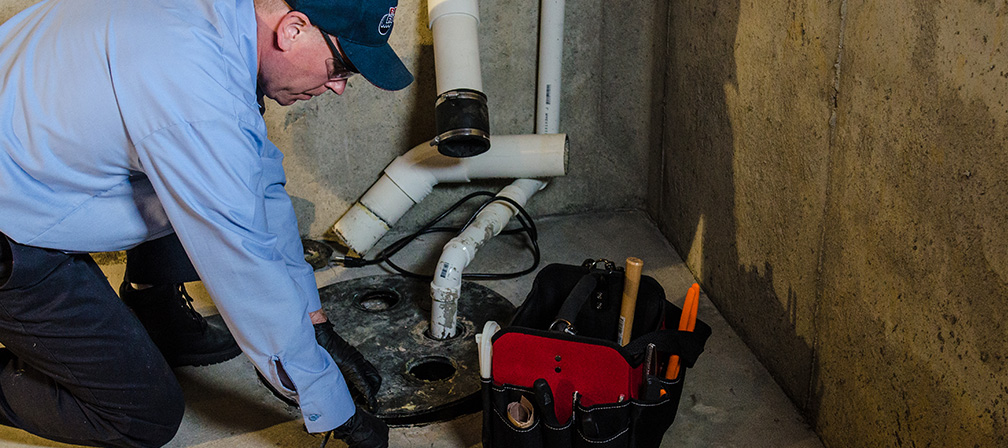Cutting-Edge Water Filtration Systems: Encouraging Healthier Living Environments
Wiki Article
Comprehending the Secret Elements of Effective Water Purification Systems

Significance of Water Purification Equipment
Water filtration systems play an important duty in making sure accessibility to clean and risk-free alcohol consumption water by effectively removing pollutants and impurities. These systems are essential in addressing the growing issues over water high quality and the possible health risks connected with taking in contaminated water. By making use of various filtering systems such as reverse osmosis, triggered carbon, and UV sanitation, water filtering systems can efficiently eliminate hazardous materials like germs, infections, heavy steels, and chemicals from the water.Additionally, water purification systems assist to improve the taste and smell of water by eliminating chlorine, debris, and other contaminants that can affect its quality. Well Pump Replacement. This enhancement in water high quality not just makes it much more palatable but also motivates individuals to consume an ample amount of water daily, promoting far better hydration and overall health
Kinds Of Filtration Components

Physical filters are developed to physically strain out contaminations from the water. These filters can be constructed from products like ceramic, carbon, and even sand, and they function by capturing bits bigger than the filter's pores as water passes through.
Chemical filters utilize different chemical procedures to eliminate contaminants from the water. Instances consist of triggered carbon filters, which adsorb contaminations, and turn around osmosis membranes, which utilize stress to separate pollutants from the water.
Organic filters make use of living organisms like germs or algae to break down organic issue and toxins in the water. These filters are often made use of in wastewater treatment plants or natural water filtration systems.
Understanding the different kinds of purification parts is vital for choosing one of the most suitable water filtration system for specific purification requirements.
Feature of Sediment Filters
Sediment filters play a crucial role in water filtration systems by successfully capturing solid particles suspended in the water. These filters are normally the very first line of protection in a filtering system, eliminating larger fragments such as sand, silt, dirt, and rust before the water moves with finer filtering phases. By capturing these debris, the filters avoid them from getting to downstream elements, hence expanding the life expectancy and efficiency of the entire system.Neglecting this maintenance can lead to obstructing, lowered water flow, and compromised filtration performance. Generally, sediment filters are important components that add dramatically to the effectiveness of water filtering systems.
Role of Activated Carbon Filters
Playing an essential role in water filtration systems, activated carbon filters contribute in getting rid of impurities and contaminants from the water. These filters are made to adsorb hop over to these guys and catch a wide variety of contaminants, including chlorine, volatile natural compounds (VOCs), pesticides, and herbicides. The turned on carbon product has a big area, enabling the reliable trapping of pollutants with a process called adsorption. As water goes through the filter, the activated carbon draws in and holds onto the contaminations, making sure that the water that comes out beyond is cleaner and more secure for intake.Turned on carbon filters are highly reliable at improving the taste and odor of water by minimizing chemicals that can affect its top quality. Due to their versatility and reliability, activated carbon filters are a key part in guaranteeing that water is purified to the greatest criteria go to my blog prior to getting to customers.
Comprehending Reverse Osmosis Systems
Reverse osmosis systems are sophisticated water filtering systems that employ an advanced procedure to get rid of contaminants and pollutants from alcohol consumption water. These systems work by applying stress to the water, forcing it through a semi-permeable membrane layer. This membrane layer acts as an obstacle, allowing just distilled water particles to go through, while blocking larger particles such as minerals, chemicals, and other contaminations. As a result, the water that comes out beyond is significantly cleaner and safer for usage.One trick advantage of reverse osmosis systems is their capacity to eliminate a variety of pollutants, including hefty metals, liquified bacteria, solids, and viruses. This makes them very reliable in improving the overall top quality and safety and security of drinking water. Additionally, reverse osmosis systems are reasonably low-maintenance and can be installed under the sink or in a main filtering system, supplying hassle-free access to clean water throughout the house. In general, recognizing recommended you read how reverse osmosis systems function can aid individuals make notified choices concerning their water filtering requirements.
Conclusion
To conclude, effective water filtration systems are vital for guaranteeing secure and tidy drinking water. The vital parts of these systems include debris filters, turned on carbon filters, and turn around osmosis systems. By understanding the feature and function of each part, individuals can make educated choices when choosing a water filtration system. It is essential to prioritize the high quality of water in order to promote general wellness and health.Water purification systems play a vital duty in ensuring accessibility to tidy and risk-free drinking water by successfully removing impurities and contaminations. By utilizing different filtration mechanisms such as reverse osmosis, activated carbon, and UV sanitation, water filtration systems can effectively get rid of unsafe substances like bacteria, infections, heavy metals, and chemicals from the water supply.
Sediment filters play an important function in water filtration systems by successfully recording strong fragments put on hold in the water (Water Treatment).Playing an essential role in water filtration systems, triggered carbon filters are crucial in getting rid of impurities and contaminants from the water supply.Reverse osmosis systems are advanced water filtering systems that employ an innovative process to eliminate impurities and impurities from alcohol consumption water
Report this wiki page